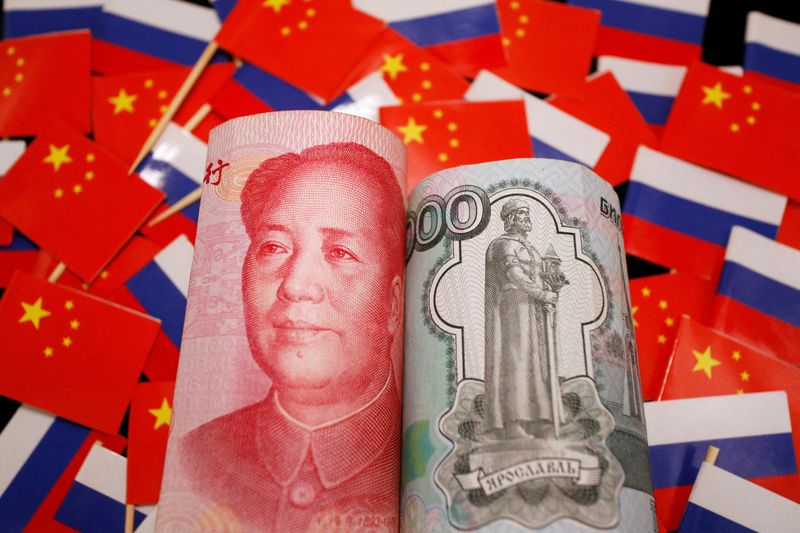By Darya Korsunskaya and Alexander Marrow
(Reuters) - Russia's finance ministry said on Thursday it would switch to foreign currency sales from purchases in the coming weeks after December oil and gas revenues were lower than expected.
The finance ministry's currency interventions are carried out by the central bank. In August 2023, the central bank deferred foreign currency purchases until the new year as it stopped them to avoid aggravating pressure on the rouble, which tumbled past 100 to the dollar in August and October.
The ministry was selling Chinese yuan for the first half of 2023 as Western sanctions over Russia's actions in Ukraine hit energy revenues. It reverted to purchases in August as commodity prices rose and energy revenues recovered.
Under its budget rule, Russia sells foreign currency from its National Wealth Fund (NWF) to make up for any shortfall in revenue from oil and gas exports, or makes purchases in the event of a surplus.
The ministry said its sales of foreign currencies and gold for the period from Jan. 15 to Feb. 6 would amount to the equivalent of 69.1 billion roubles ($778.2 million), or 4.1 billion roubles ($46.2 million) per day.
Russia's December energy revenues were 199.9 billion roubles lower than the ministry had expected, it said. In January, Russia expects additional energy revenues for the budget of 130.8 billion roubles.
In the previous period, between Dec. 7 and Jan. 12, the ministry had planned to buy foreign currency worth 244.8 billion roubles.
This year, the central bank's mirroring of finance ministry operations, including the deferred foreign currency purchases from August to December, is being adjusted by the volume of NWF funds spent on financing the government's budget deficit for 2023 and supporting companies.
Taking that NWF spending into account, the central bank will ultimately make net sales of foreign currency, which should support the rouble, analysts say.
According to a central bank statement in late December, overall operations are set to be adjusted by separate daily yuan sales worth 12.6 billion roubles until the end of January. Daily sales equivalent to 11.8 billion roubles are envisaged from February to June 28.

December's energy revenue shortfall and the ministry's switch to sales mean the central bank should sell the equivalent of 16.7 billion roubles a day in the second half of January.
($1 = 88.7975 roubles)